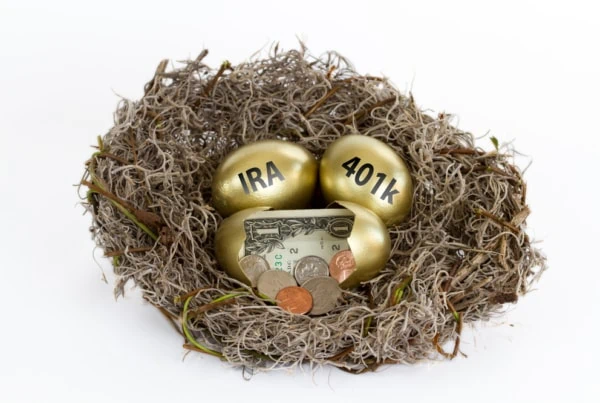If you’re thinking of opening a custodial brokerage account for your child, you’ve probably uncovered a long list of brokers offering both Uniform Gifts to Minors Act (UGMA) and Uniform Transfers to Minors Act (UTMA) accounts. While these two types of custodial accounts are similar, there are important differences. So you might be asking yourself, do I pick a UGMA account or a UTMA account?
But here’s the rub: Even though all those brokers are advertising UTMA and UGMA accounts, most people really don’t have a choice. If you live in any one of the 50 states or the District of Columbia, you’re getting a UTMA account. Period.
So, does that mean UGMA accounts have gone the way of the dinosaur? Not quite (yet). As I’ll explain, it’s still technically possible to own a UGMA account in the U.S., but you can’t open a new one.
Related: Best Custodial Accounts: How to Start Investing for Kids
What Are UGMA and UTMA Accounts?
Before getting into the current state of UGMA accounts, let’s take a quick look at UGMA and UTMA accounts in general.
Both are custodial accounts established under uniform laws enacted by multiple states. UGMA accounts were created under the authority of the Uniform Gifts to Minors Act, which years ago was adopted by every state in the country. However, beginning in 1984, states gradually started replacing their version of the Uniform Gifts to Minors Act with the Uniform Transfers to Minors Act, which essentially is an updated version of the UGMA.
In April 2022, South Carolina became the last state to replace its version of the UGMA with the UTMA. So, at this point, there are no longer any states that follow the UGMA (including the District of Columbia).
What Are Uniform Laws?
For legal issues typically handled at the state level—such as property rights, contracts, personal injuries, and the like—variation from one state to another sometimes causes problems for people and businesses relocating to a different state or conducting business across state lines.
To help smooth out these issues, uniform laws are created by independent organizations like the Uniform Law Commission (which drafted both the UGMA and UTMA) with the expectation that all or a majority of the states will adopt them. As more states adopt a uniform law, differences between state laws in different jurisdictions slowly melt away.
At least, that’s how it works in theory.
In reality, though, complete uniformity is rarely accomplished. That’s because each adopting state can tweak a uniform law to fit its own unique circumstances. Since this happens frequently, it’s hard to find an area where all 50 states and the District of Columbia have the same exact law on their books.
Don’t get me wrong—uniform laws go a long way toward getting states on the same page with regard to certain legal issues. Just don’t expect uniform laws to be adopted “as is” in every state.
Differences Between UGMA and UTMA Accounts
As custodial accounts, both UGMA and UTMA accounts are managed by a custodian for the benefit of a minor. Any adult can be a custodian, but they’re typically the child’s parent, guardian, grandparent, or other relative. Once the child reaches the age of majority (which varies from state to state), he or she takes control of the account.
There are some important differences between UGMA and UTMA accounts, though. The most important difference involves the type of property you can hold in an account. With UGMA accounts, you’re usually limited to financial assets, such as cash, stocks, bonds, mutual funds, exchange traded funds (ETFs), life insurance policies, and the like. However, there are no restrictions on the type of property you can hold in a UTMA account. So, for example, you can hold real estate, coins, art, or even cars in a UTMA account.
More types of property in an account can also add greater liability risks for the custodian and minor (e.g., accidents happening on real estate held in an account). As a result, UTMA accounts come with greater liability protection if there’s a claim tied to custodial property. The minor isn’t liable for a claim unless he or she is personally at fault. Custodians avoid liability unless they’re at fault or fail to reveal the custodial relationship when entering into a contract.
There are also differences in how the account can be funded. Under the UGMA, only standard gifts of cash or other financial assets are usually allowed. But with UTMA accounts, other asset transfers are allowed, such as transfers from trusts, estates, or guardianships. A UTMA account can even be funded by the payment of debts owed to a minor.
YATI Tip: Custodial accounts are great for teaching children how to manage money. In addition to learning how to research stocks, kids can see firsthand how real money and other assets can grow and increase in value over time—all while the account is supervised by an adult custodian.
Related: UTMA vs. 529 vs. Coverdell ESA [College Savings + More]
Can You Still Open a UGMA Account?
Even if a brokerage firm advertises both UGMA and UTMA accounts, you can’t open a new UGMA account today if you live in any of the 50 U.S. states or the District of Columbia. If you try to open a UGMA account, a UTMA account will be opened instead.
I confirmed this practice with representatives of two large brokerage firms, Vanguard and T. Rowe Price. “UTMA has been adopted by all states, the District of Columbia, and the U.S. Virgin Islands,” notes Sabino Vargas, Senior Financial Advisor at Vanguard. “Therefore, new custodial accounts will be established as UTMAs.”
Likewise, Phil Korenman, Head of Individual Investors at T. Rowe Price, said “we do not open UGMA accounts in states that have adopted the UTMA”—which is every state.
You can still open a UGMA account in Guam, though. That U.S. territory hasn’t replaced its UGMA law with the UTMA. (Puerto Rico hasn’t enacted either the UGMA or UTMA, so you can’t open either of these custodial accounts there.)
Related: Education Tax Credits and Deductions
What If You Have an Old UGMA Account?
Don’t worry if you still have a UGMA account opened before your state transitioned to the UTMA. Assuming it hasn’t been modified by the enacting state, the UTMA includes a provision validating gifts and transfers made under the state’s former UGMA law.
As a result, once a state switches from the UGMA to the UTMA, any previously existing UGMA accounts are treated as UTMA accounts and governed by the state’s new UTMA law until the minor reaches the age of majority and the account is terminated.
Based on the various state UTMA age-of-majority laws, this means former UGMA accounts can still be active in South Carolina and Vermont (the last two states to adopt the UTMA). However, after all the former UGMA accounts in these two states are terminated because the minor reaches the age of majority, then there will no longer be any legacy accounts in existence and UGMA accounts will be completely extinct in all 50 states at that point.
YATI Tip: It’s actually a good thing if you have an old UGMA account that’s still active and want expanded investment options for the account. For instance, a custodian can start investing in real estate, collectibles, and other types of property once a former UGMA account is transformed into a UTMA account.
Related: Roth IRA for Kids: Can I Open a Custodial IRA for a Child?
Why Do Brokers Still Advertise UGMA Accounts?
There are a few reasons why brokers still advertise UGMA accounts. One reason is that people are looking for UGMA accounts and, in some cases, might even still have one. As Korenman notes with regard to T. Rowe Price’s continued use of “UGMA” in its advertising, “UGMA is a legacy term, which is familiar to certain clients, and there are legacy UGMAs on our books. Our servicing forms reflect both UTMA and UGMA for this reason.”
Brokers also point out that some people can still open a UGMA account. For Vanguard accounts, Vargas noted that “Guam has not adopted UTMA, so these accounts must be established as UGMAs.” Similarly, Korenman mentioned that T. Rowe Price still offers UGMA accounts because Guam hasn’t adopted the UTMA, “so there could be certain scenarios whereby a UGMA would still be established.”
The people who drafted the UTMA seemed to expect this practice, too. That’s why they included a provision in the UTMA that validates transfers that mistakenly refer to the enacting state’s UGMA rather than to the UTMA.
In any event, regardless of the legality of or the reasons behind a broker still advertising both UGMA and UTMA accounts, you’ll be fine as long as you remember you’re getting a UTMA account if you live in the U.S. (other than in Guam).
Related: Best Brokerage Accounts for Teenagers
Where Can I Open a Custodial Account? Try an Acorns Early Invest Account
- Available: Sign up here
- Price: Acorns Gold: $12/mo. (Required for Acorns Early Invest)
Acorns, through its Acorns Gold tier, allows parents to open up a custodial brokerage account (Acorns Early Invest) for their children.
Acorns Early Invest offers investment portfolios of various risk levels, so you can feel confident in the account you’re opening up on one of the best stock trading apps for beginners for your little one. It also has no minimum deposit and allows you to contribute money on a regular basis.
Better still? Acorns Gold also allows you to open an Acorns Early account for your child. Acorns Early is a prepaid debit card and spending app that helps children learn how to handle money through real-life experience and educational material.
Custodial accounts are among the best ways to invest $1,000 for your child, and this micro-investing app delivers.
Read more in our Acorns review.
- Acorns allows you to sign up for investment, retirement, and checking accounts for you and your family, learn how to earn more money, and grow your investing knowledge.
- Famous for investing spare change automatically through Round-Ups, this all-in-one financial app helps younger generations start investing earlier.
- Invest in expert-built portfolios made up of diversified ETFs.
- Silver tier includes perks such as a 25% match on Acorns Earn rewards (up to $200/mo.), generous APYs on Checking and Emergency Fund, and live Q&As with investing experts.
- Gold tier includes perks such as a 50% match on Acorns Earn rewards (up to $200/mo.), $10,000 in life insurance, picking individual stocks for your portfolio, a free Acorns Early account, and Acorns Early Invest custodial accounts for children with 1% contribution matches.
- Earn even more with Later Match: Acorns will match up to 1% (Silver) or 3% (Gold) of all new IRA contributions in your first year.*
- Special offer: Get a free $20 bonus investment when you sign up with our link and start making recurring investments.**
- Robo-advisor with affordable fees (on larger portfolios)
- Fixed fee model
- Round-ups
- FDIC/SIPC insurance
- IRA match (Silver and Gold)
- High fixed fees for small balances
- Limited investment selections
- Must subscribe to Gold for any self-directed investing options
Related:




![What Is a UGMA Account? [Can You Open One in 2024?] 1 are ugma custodial accounts dead yes no](https://youngandtheinvested.com/wp-content/uploads/are-ugma-custodial-accounts-dead-yes-no-584x389.webp)
![What Is a UGMA Account? [Can You Open One in 2024?] 2 parent child investing UGMA UTMA](https://youngandtheinvested.com/wp-content/uploads/parent-child-investing-UGMA-UTMA.webp)
![What Is a UGMA Account? [Can You Open One in 2024?] 3 parents daughter saving](https://youngandtheinvested.com/wp-content/uploads/parents-daughter-saving.webp)
![What Is a UGMA Account? [Can You Open One in 2024?] 4 custodial account long term investing](https://youngandtheinvested.com/wp-content/uploads/custodial-account-long-term-investing-1.webp)
![What Is a UGMA Account? [Can You Open One in 2024?] 5 custodial account son father child kid](https://youngandtheinvested.com/wp-content/uploads/custodial-account-son-father-child-kid.webp)
![What Is a UGMA Account? [Can You Open One in 2024?] 6 acorns signup](https://youngandtheinvested.com/wp-content/uploads/acorns-signup-new2.webp)
![What Is a UGMA Account? [Can You Open One in 2024?] 7 Acorns | Invest, Earn, Grow, Spend, Later](https://youngandtheinvested.com/wp-content/uploads/acorns-logo-transparent-symbol.webp)

![Should You Max Out Your 401(k) Each Year? [Yes...and No] 15 should you max out your 401k each year or invest elsewhere](https://youngandtheinvested.com/wp-content/uploads/should-you-max-out-your-401k-each-year-or-invest-elsewhere-600x403.webp)

